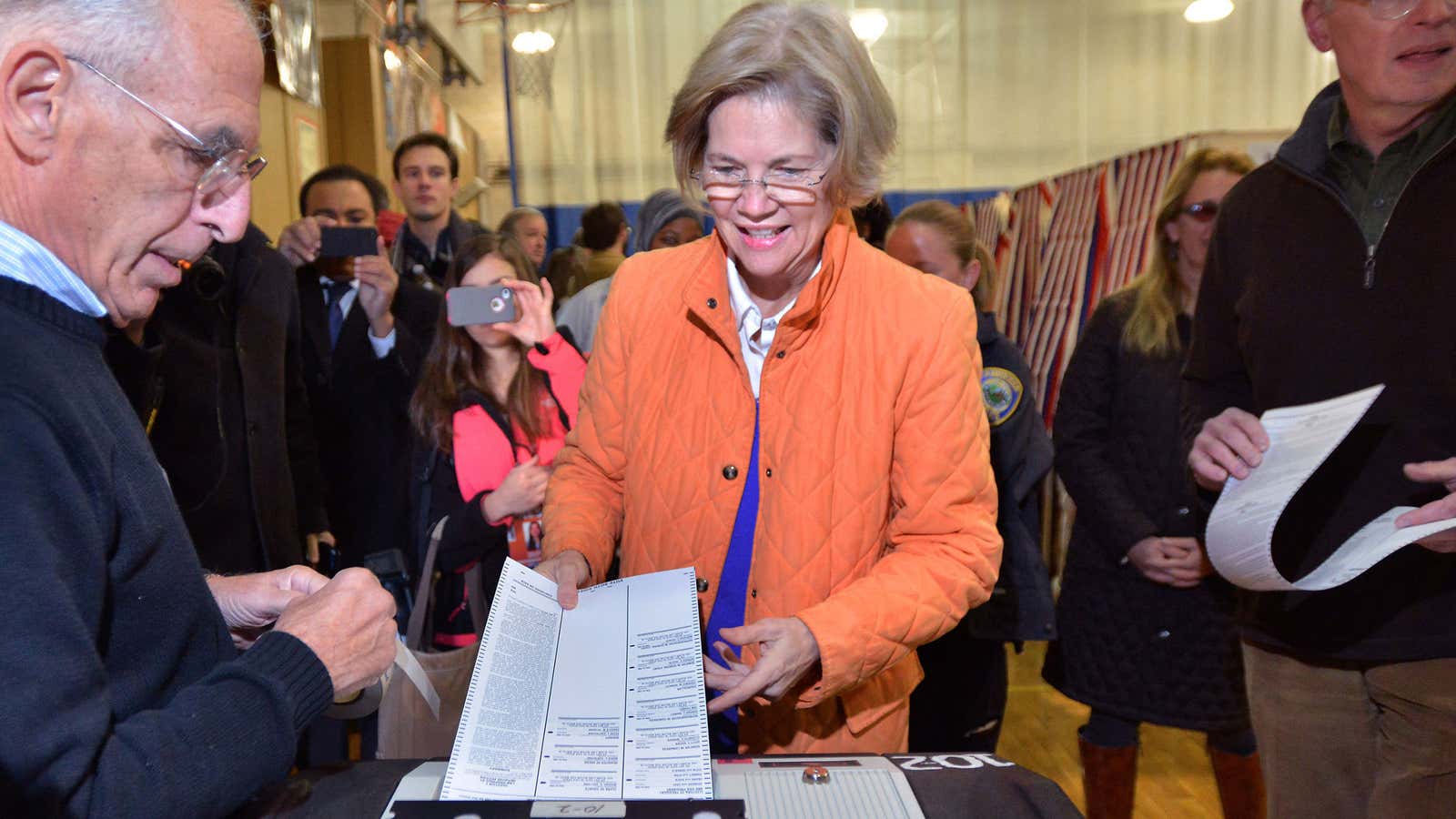Bill Clinton and George W. Bush pursued financial de-regulation, Barack Obama bailed out Wall Street in 2008, and 2010 brought in a much more bank-friendly Congress. But 2012?
Well, so far, Elizabeth Warren, the Harvard academic and financial regulator, is projected to be elected to the Senate from Massachusetts. That august body filibustered her appointment to run the Consumer Financial Protection Agency, the newly-created bank watchdog that she essentially invented, so now she’s now joining the old boys club. Expect her to be a major voice on financial rules, whether or not she ends up on the Senate Banking Committee. And though she worked briefly for President Obama, she’s an equal opportunity populist: As the chair of the committee that oversaw the TARP bailouts, she had plenty of harsh words for Secretary of the Treasury Tim Geithner.
Another major critic of the banks, controversial Democratic Representative Alan Grayson, is returning to office after being booted from his seat in 2010, and you can be sure he’ll have plenty of unkind words and laws for unlucky Wall Streeters. Grayson was one of the driving figures who forced an audit of the Federal Reserve as part of the Dodd-Frank financial overhaul, and his ability to work with bank-skeptical Republicans like Rep. Ron Paul makes him something of a double threat. Expect him to fulminate for new rules on compensation, transparency and bank behavior; even if his party’s not in the majority, Grayson is a media favorite who finds ways to get attention.
The final stroke against the banks could be the reelection of President Obama, Wall Street’s best friend in 2008 and public enemy number one ever since. Given widespread political opposition to his campaign from the financial sector, expect it won’t have much say in naming the next Treasury Secretary or the appointees who run regulatory agencies, shaping future housing reforms, or merely protecting the carried interest loophole.
Of course there is an important caveat, which is that Wall Street may not know what’s good for it—following the financial sector’s agenda isn’t necessarily a path to growth. After all, historic data shows that the stock market performs better under Democratic presidents, which should provide some solace amid Obama’s win.
